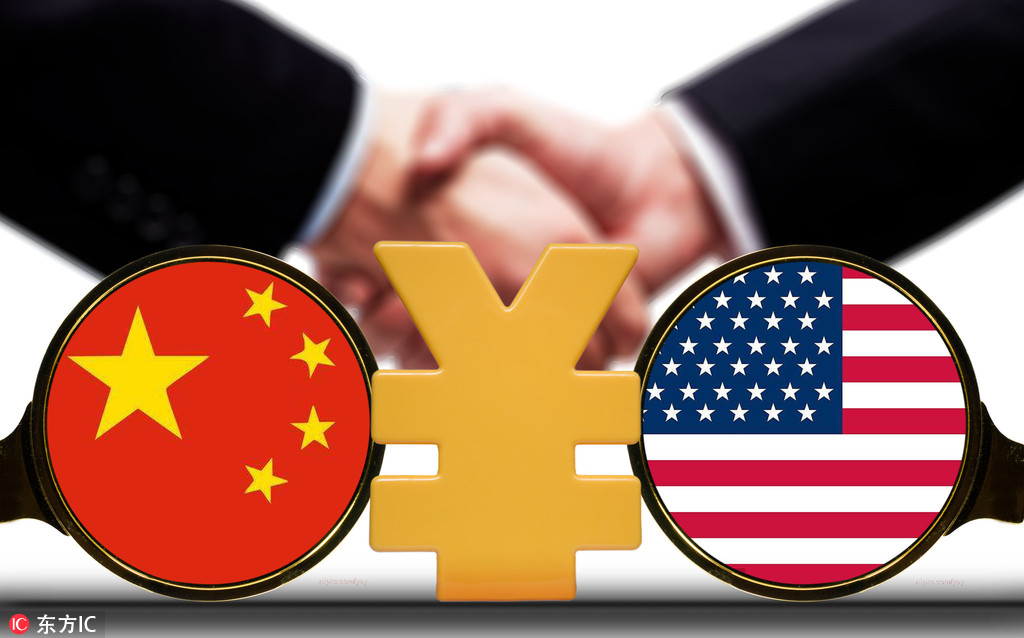China will increase purchases of US goods — if it wants them
By ZHAO HUANXIN in Washington | China Daily USA | Updated: 2018-05-22 22:29

The just-concluded US-China trade talks produced a joint statement in which China pledged to significantly increase purchases of United States goods and services. There is, however, an important caveat to such a commitment.
It is that the products and services from the US, or indeed from any other country, must be those that the Chinese people are willing to buy.
It is an important caution; it means China won’t buy additional US products and services it doesn’t need, nor is the country likely to switch purchases from other countries to the US.
The reminder came at a news briefing in Washington on Saturday morning, hours before the joint statement was released.
Speaking to the media near the end of what he said was a “positive, pragmatic, constructive and productive” visit to Washington,Vice-Premier Liu He said China and the US have reached consensuses on economic and trade issues, pledging not to engage in a trade war.
Liu, who is President Xi Jinping’s special envoy,said the country, with a large middle-income population, will become the world’s largest market.
“The Chinese market will be highly competitive; nations longing for the market have to improve the competitiveness of their products and services so that the Chinese people are willing to buy,” Liu said.
Liu earlier said the number of China’s middle-income earners had reached 400 million and is still growing.
He said China’s economy has been transitioning to a stage of high-quality development in which the country will expand the domestic market and actively increase imports to satisfy the needs of people, the economy and national development.
With regard to exporting to China and taking up market share there, Liu said the products and services must attract Chinese consumers.
“If the Chinese people wouldn’t buy, it is useless to make whatever demands,” he said.
Liu also pointed out that China is ready to buy goods not only from the United States but also from around the world.
It is safe to say that Liu’s remarks would be soothing to those who worried that the latest China-US consensuses will come at the expense of some other exporters, like China’s trade partners in Europe and Asia.
The China-US joint statement said the two sides agreed on the need for “effective measures” to reduce the US trade deficit in goods with China. They also agreed on “meaningful increases” in US exports of agriculture and energy products.
As increasing imports from the US doesn’t mean decreasing exports from China, it is expected that the agreement will take the two-way trade between the two countries to a higher level.
The US is aiming high. In a series of tweets posed on Monday, US President Donald Trump said, “Under our potential deal with China, they will purchase from our Great American Farmers practically as much as our Farmers can produce.”
Treasury Secretary Steven Mnuchin, who led a delegation to talk with a Chinese team led by Liu on Thursday and Friday, said on Sunday that the United States expects to see an increase of between 35 percent and 40 percent in agricultural exports to China this year alone and a doubling of energy purchases over the next three to five years.
China is the US’ largest export market outside North America. In 2016, the US had a trade surplus in agricultural products of $16.4 billion, according to a research report release by the Ministry of Commerce in May 2017.
It is noteworthy that the US treasury secretary did not specify a numerical target for cutting the trade gap with China, nor did the Chinese side.
After all, the market will play a major role in deciding the scope of US exports to China. In addition, how the two sides will make concerted efforts and coordinatewith each other also will matter.
Economically, China and the US are highly complementary. The US boasts a tremendous advantage in sectors including energy, agriculture, high technology and medical and financial services, all for which China has huge demands.
In business, nobody likes to have deals imposed on them, nor would they like restrictions on purchasing certain products, such as the high-technology export barriers.
In the joint statement, Beijing and Washington agreed to continue high-level engagement and to seek to resolve their economic and trade concerns in a proactive manner.
Let’s hope the world’s top two economies will lead by example of continuing win-win cooperation with mutual respect, a situation that China is also seeking with other business partners.
Contact the writer at huanxinzhao@chinadailyusa.com
























